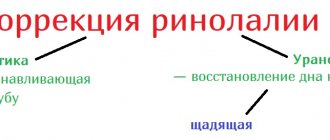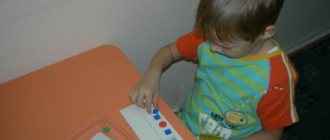Causes
The central and peripheral nervous systems are responsible for speech hearing. The negative impact on them is the impetus for acoustic dysfunctions. The main causes of the disease can be:
- Weakening of the body at any age, especially early
- Infectious diseases
- Digestive problems
Lack of vitamins and minerals leads to lethargy, isolation, and apathy. Attention, level of concentration, memory weakens.
- Thyroid diseases
Hypothyroidism is especially dangerous at an early age, in newborns. Lack of hormones or their abundance have a strong impact on brain processes and mental development.
- Hyperactivity
It is difficult for the child to concentrate; he does not listen to the conversations of adults or their speech. Captures phonemes fragmentarily and also reproduces them.
- Hearing loss
- Injuries to the head, speech and hearing organs
- Unfavorable social environment
- Negative example
The parents have obvious, advanced speech defects that were not corrected in childhood.
Regardless of the causes of phonemic hearing impairment, you should contact a speech therapist, laryngologist, or neurologist as early as possible. Only a special examination and identification of the causes of the disease will help make a diagnosis and correct defects in a timely manner.
How to develop?
First, the baby learns to navigate everyday sounds: the sound of water, the meowing of a cat, the click of a switch.
The temporal cortex of the right hemisphere is responsible for this function. Over time, the baby not only reacts to sounds, but also tries to repeat them.
By about eight months, the child uses only those sounds that are present in his native speech.
At normal rates of development, already in a year or two the “little person” is able to carry out a simple order (“bring the doll”) or understand a basic question (“where is mommy?”).
To develop phonemic hearing, first of all, you need regular classes and exercises. They can be carried out either under the supervision of a speech therapist or at home with the mother. We will look at specific examples for each age below.
In children 3-4 years old
- By the age of three, a child can distinguish all sounds. The decisive factor in the development of phonemic hearing is the development of speech in the process of communication with other people.
- We show the baby various musical instruments: wooden spoons, tambourine, bell. Let's listen to their sound and play. Then we ask you to turn away: the child must guess the name of the instrument by ear.
- Introduce your son or daughter to the concepts of “hot” and “cold”. Then we roll the ball. If an adult says “hot,” you cannot touch the ball.
- Together with your child, pour cereal, buttons, and pebbles into different bags. By the sound, the baby will guess what is in each of them.
- An adult shows a picture and names the object, specifically replacing the sounds in it. The baby should clap the moment he hears the correct option. For example, short-gate-over.
In children 5-6 years old
Only those sounds that are pronounced correctly are perceived correctly. This influences vocabulary development and literacy acquisition. Understanding the connection between letters and sounds is possible only with clear pronunciation.
- We select two pictures - with a bear and a mouse. Discuss the first: the bear lives in the forest and sleeps in a den. Then remember about the mouse: what does it like and where can you meet it? We explain that the words sound similar, but their meanings are completely different.
- Say them with your child and let them feel the difference. You can play in the same way with other pairs of words: stove-candle, tire-car.
- We show various pictures of objects and ask them to clearly pronounce what is depicted on them. If you break words into parts, this will only be a plus: bang, shish.
- The child guesses which character’s voice you were talking in just now. In a more complex version, the baby himself “tryes on” various sound intonations: he tries to speak in the voice of a hare, fox or robot.
For children 6-7 years old
Many parents are sure that they only need to learn letters with their child, and he will immediately begin to read and write. However, this is a big misconception. Memorizing letters does not guarantee the absence of serious difficulties in learning to write. And most errors arise precisely because of problems with phonemic hearing.
- An adult makes a sound and names the word in which it is present. The child must catch this sound: clap his hands when he hears it. First, we select the words so that the sound comes at the very beginning. We gradually complicate the task: we move it to the middle or end. After some time, you can read the whole text and “catch” the sound in the same way.
- The adult says the word and throws the ball to the child. The baby must respond with a rhyme and throw the ball back. Let's start with the simplest words. If the child finds it difficult, we suggest him the right answer.
- We suggest listening to a chain of words and then repeating them. We gradually add new words. At first, you can play with the help of pictures, but then the emphasis is on auditory memory. Goal: remember as many words as possible in a row. An error has occurred - the game starts again.
REFERENCE! It will be interesting to play school with your child, where he is the teacher and the adult is the student. Turn into Dunno, who confuses everything and makes mistakes in everything. Let the baby correct your mistakes.
Features of mental development of children with hearing impairments
The mental development of a child is characterized by the development of his attention, memory and thinking. According to the results of numerous studies, hearing-impaired children experience difficulties in the development of all these indicators.
Features of attention
Children with hearing impairment simultaneously perceive a much smaller number of elements than children with normal hearing. This is especially evident in lessons, when it is necessary, for example, to listen to the teacher and write in a notebook at the same time. It also takes a hearing-impaired child much longer to switch from one type of perception to another, for example, from reading to listening.
Memory Features
Children with normal hearing involuntarily remember a huge number of things through simple contact with the outside world. In a hearing-impaired child, as we remember, such contacts are quite limited, so he remembers much less, although he is capable of the same volumes as a healthy child. Children with hearing impairments are good at remembering words that are closely related to visual images, and things are much worse with words denoting sound or abstract phenomena.
Features of thinking
Due to limited contacts with the world and society, the set of mental tools of a child with hearing loss is not so wide. He often tries to open different doors with one key. A child may have difficulty identifying main and minor details in stories or drawings, or identifying non-obvious cause-and-effect relationships. In general, the development of thought processes will be significantly slowed down.
Teaching children with hearing loss is a challenging task. Both parents and specialists should be involved in solving it in parallel.
Games and exercises for developing the perception of non-speech sounds
In classes with preschool children, various musical instruments, all kinds of “sounding” objects and toys are widely used. It is important that the child learns to easily determine what sound he hears.
- "What's singing?" The child is invited to listen to the sounds of musical instruments - a children's pipe, drum, piano, xylophone. It is necessary to determine the sound of which instrument he heard.
- "Magic boxes". Pour different fillings into cardboard boxes - peas, cereals, sand, metal buttons or paper clips. Let the child, with his eyes closed, listen to one of the boxes rattle, and then find it among the others by the sound.
- It can be very interesting to find out what the world around us sounds like. Try with your children to determine by sound what is happening - water is flowing, a cabinet door is opening, a vacuum cleaner is humming, etc.
Classification of hearing loss
- I degree:
usually the child hears well, but problems begin when he finds himself in a noisy acoustic situation. - Stage II:
There are problems with whispered speech, even if it is heard in a quiet environment. - Grade III:
The child has serious problems understanding speech, even if it is quite loud. - IV degree:
the baby hears only what sounds very close to his ear.
The only thing worse than fourth degree hearing loss is complete deafness.
Please note: hearing loss is not a temporary quantitative decrease in the ability to perceive sounds, but qualitative irreversible changes in the entire auditory system, which will inevitably have an impact on the development of the child’s psyche. The role of hearing in human development is very great.
What is phonemic awareness?
Phonemic hearing is in no way equal to physiological hearing. It is associated with speech and a person's ability to distinguish between phonemes. Phonemic awareness is necessary to understand the meaning of what is said. So if a child begins to distort sounds, replace or skip them, you need to take a closer look at the problem. This may affect the quality of training in the future.
As a result, difficulties arise in reading and writing lessons, and then in all other lessons. Failure to succeed in studies negatively affects self-esteem: the position of an outsider is consolidated in the subconscious. It is important to begin developing phonemic awareness in early childhood. You need to speak normally to your baby: without lisping or distorting words. It is useful to read simple rhymes, fairy tales and proverbs aloud.
The connection between phonemic and lexico-grammatical representations is obvious. If phonemic awareness is developed systematically, children will be much better at understanding endings, prefixes and words with the same root. Developed phonemic hearing will allow you to control your voice - speak louder or quieter, slow down or speed up your speech, highlight semantic stress.
Training the perception of volume and sound intensity
In tasks of this type, the child learns to correlate the strength of sound with the distance to its source, and to focus on timbre and volume.
- “Zhmurki” is the most famous version of this game. Blindfold your child and ask him to find you while listening to you clap your hands. You can avoid someone who is “squinting” and change locations.
- "We're hiding from the wolf." Children are bunnies playing in the clearing to music. Quiet music means everything is calm, loud music means a wolf is coming, you have to hide.
- "Let's draw a sound." Invite your child to draw the length of the sound. Take a tambourine, a children's piano or a pipe. If the sound is long, you need to draw a long line on the piece of paper, and vice versa.
- It is very useful to simply dance to music. Ask what the child wanted to express in the dance, what feelings the melody aroused in him. Or ask them to draw an illustration for a piece of music.
Exercises on the ability to distinguish words that sound similar
- "What did I say?" Place pictures of different objects in front of your child. Name words that sound similar (lac-rac-mac, mouse-bear), the child must show a card with the desired picture.
- “Correct the mistake.” Children love to correct adults. Ask them to find mistakes in your words - “We have hats on our feet, we’ll wear slippers outside,” etc.
- “Rhymes” - when reading poetry, pause at the end of the quatrain, let the child finish the sentence himself. Many riddles are built on this same principle.
- "Applause". Show the picture and ask the child to clap if you name it correctly. For example, hat-slub-gag.
Exercises to distinguish phonemes and develop analysis and synthesis skills
- One of the most common games on this topic is selecting words starting with a specific letter. Whoever can come up with the most words wins.
- Another option is a variation of the city game. You need to come up with a word that begins with the last letter of the previous one (bus - plum - orange).
- "Collect the word." The adult says the letters of the word separately (R-Y-B-A), and the child must name the whole word. Or you can play the other way around so that the children name the letters.
- Games with cards. From a set of pictures, the child must find an image of an object in which the given sound is at the beginning of the word, at the end, in the middle. For example, R - River, tigR, matros.
- “What is the common sound?” - the adult says a few words, and the child must say what sound is in all the words (cat, hat, stick - the sound Ш).
The development of phonemic hearing in children is an important task. However, when planning classes, you need to remember that they need to be conducted in a playful way, not to tire the child, and be sure to praise for success. In addition to the development of phonemic hearing, it is necessary to pay attention to the development of logical and creative thinking and articulatory gymnastics. Start with exercises that he can do, gradually making the tasks more difficult. A good mood and interest are the best motivation.
Publication date: November 25, 2016. Last modified: 05/09/2018.
Definition
Phonemic awareness is the ability to distinguish, analyze and differentiate heard phonemes - this is phonemic awareness. The baby's sound analyzer is turned on immediately after birth.
He listens to voices and reacts to them. After 6-7 months, he imitates the conversations of adults, copying syllables and individual sounds. By 12 months - says the first word.
In this way, acoustic images of individual phonemes are formed. Children can mix and replace them, this is considered the norm until a certain age. By the age of 4, the child should have a good grasp of the technique of pronunciation of most sounds of his native language. The only exception is -. If this does not happen, then we can talk about dyslalia - phonemic hearing impairment. It is important that incorrect pronunciation does not become a habit; the child must learn to control the clarity of speech, listen carefully to others and to himself.






